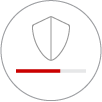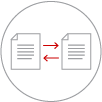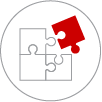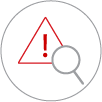Trend Micro IT Helpdesk takes the stress out of technology by providing 24x7 support for your computer needs. This service gives you peace of mind through emergency hotline access to our expert support specialists. IT Helpdesk also offers quick diagnosis of your computer issues, assistance and problem resolution through remote support and automatic priority access.
Our remote support services mean that a Trend Micro technician can make a “virtual house call” when you experience any computer-related problems anytime, day or night. No hassle, and no waiting.
IT Helpdesk services include:
- 24x7 assistance
- IoT support home network scan
- Microsoft® Support - including Windows 11 Upgrade
- Macintosh OS support
- Android support
- Microsoft® Office Installation and updates
- Personal IT Help Desk
- Internet and email support
- Premium installation of your security software
- Virus and spyware removal
- PC Tune-Up
- Data back-up
- Advanced diagnostics and resolution
- Security advisor
- Remote desktop support
- Optimisation of your Facebook settings
Trend Micro's Premium IT Helpdesk plan covers all devices included under a customer's licence (up to a maximum of 10 devices) running Microsoft Windows, MacOS or Android operating system. Trend Micro's Premium IT Helpdesk service plans are intended for use by home and home-office customers only and, as such, support cannot be provided for beta software, computers running server operating systems or that have been configured to run in a corporate LAN environment. Support services are provided on a “best efforts” basis and for some issues, such as those relating to hardware defects and licensing or account management issues from third party providers, you may need to be referred to the manufacturer or provider for support.











